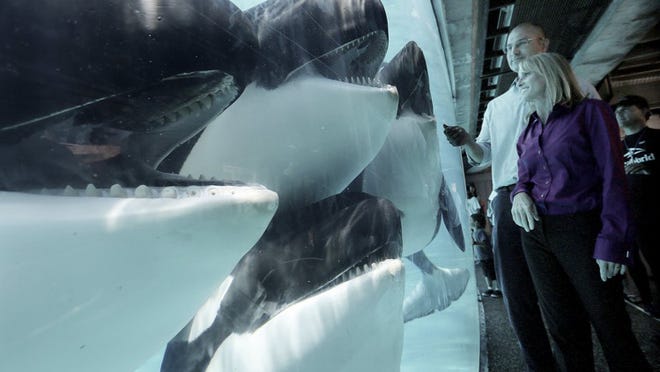Whales, like all animals, deserve to live their lives in the wild, free from human interference. Unfortunately, some whales are kept in captivity, either for entertainment or for scientific research. There are many compelling reasons why whales should not be kept in captivity, and it is important for society to recognize and address these issues.
One of the main reasons why whales should not be kept in captivity is that it is inherently inhumane. Whales are intelligent, social animals that are adapted to living in the open ocean. In captivity, they are confined to small tanks or enclosures that do not allow them to engage in natural behaviors such as hunting, mating, or migrating. This can cause them significant stress and frustration, leading to abnormal behaviors and even physical ailments.
Another reason why whales should not be kept in captivity is that it can have negative impacts on their health. Whales in captivity often suffer from a variety of health problems, such as skin lesions, dental problems, and respiratory infections. These conditions can be caused by the poor water quality and cramped living conditions of captivity, as well as the stress of being confined to a small space. In addition, many captive whales do not live as long as their wild counterparts, often dying prematurely due to the challenges of living in captivity.
Captivity also undermines the conservation efforts of these animals. Many species of whales are endangered or threatened, and it is important that we do everything we can to protect and preserve their natural habitats. Keeping whales in captivity takes them out of the wild, reducing the overall population and hindering their ability to reproduce and thrive. In addition, the money spent on maintaining captive whales and supporting their captivity could be better spent on conservation efforts in the wild.
Finally, there is a growing body of evidence that suggests that keeping whales in captivity is not beneficial for education or research. While it may be possible to learn some things about whales by studying them in captivity, this information is limited and does not accurately reflect the complexity of their lives in the wild. In addition, the ethical concerns surrounding the captivity of whales make it difficult to justify their use in scientific research.
In conclusion, there are many compelling reasons why whales should not be kept in captivity. It is inhumane, can have negative impacts on their health, undermines conservation efforts, and is not necessarily beneficial for education or research. We should do everything we can to protect and preserve these magnificent animals in their natural habitats, rather than confining them to tanks and enclosures for our own entertainment or convenience.








:max_bytes(150000):strip_icc()/keiko-captive-killer-whale-featured-in-movie-free-willy-oregon-coast-aquarium-newport-oregon-usa-141848241-57c473855f9b5855e5babf84.jpg)